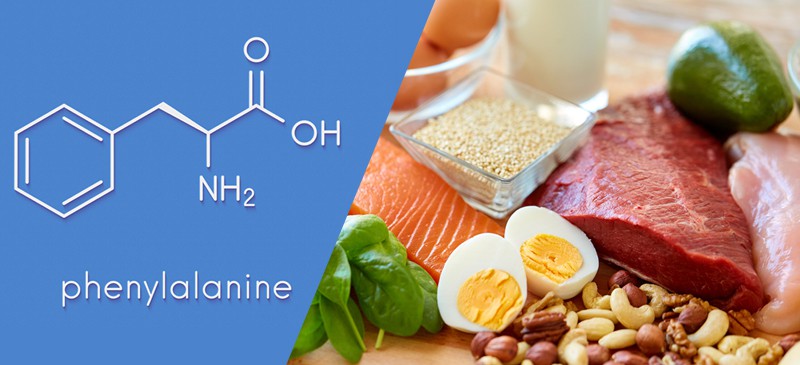
Amino acids are constituents of proteins that enable the body to carry out functions in each of its tissues. Amino acids also have a variety of types and play their unique roles. One type of amino acid is phenylalanine which is important for the production of proteins and other molecules. Get to know phenylalanine further.
What is phenylalanine?
Phenylalanine is a type of amino acid that is a component of protein in the body. The phenylalanine molecule has two forms, namely L-phenylalanine and D-phenylalanine. The two are actually almost identical, even though they have slightly different molecular structures.
The form of L-phenylalanine is contained in various types of food, so it plays a role in the formation of proteins in the body. L-phenylalanine also becomes a type of essential amino acids. That is, these amino acids cannot be made independently by the body so they must be obtained through food intake. Meanwhile, the form D-phenylalanine can be made synthetically for use in medical needs.
Phenylalanine also has a number of benefits, besides having a role in protein production. Phenylalanine is used to produce important molecules in the body, some of which are crucial for the delivery of signals
However, although essential, phenylalanine can be dangerous for people suffering from a genetic disorder called phenylketonuria or PKU.
The role of phenylalanine for body function and performance
As stated above, phenylalanine plays an important role for the body. This role is included in the production of proteins and the manufacture of various important molecules.
1. Play a role in protein production
The body needs phenylalanine and other amino acids to produce protein. Protein can be found in various corners of the body’s tissues, such as in the brain, blood, muscles, and other organs.
2. Play a role in the production of various important molecules and compounds
Making important molecules and compounds in the body also requires phenylalanine. These molecules and compounds, including:
- Tyrosine, a type of amino acid produced directly from phenylalanine. Tyrosine is also used in the production of new proteins and the body can also be converted into other molecules.
- Dopamine, a compound that plays a role in happy feelings in the brain. Dopamine also plays a role in the formation of memory and learning abilities
- Epinephrine and norepinephrine, vital compounds in the formation of an ‘opponent or run’ response (fight or flight) when we are stressed
Potential benefits of phenylalanine for treating certain diseases
In addition to being essential in the formation of proteins and important molecules in the body, phenylalanine is being trialled to treat certain diseases and psychological conditions. The following medical problems are expected to be helped by treatment with phenylalanine:
- Vitiligo. A research says that taking phenylalanine supplements has the potential to overcome this skin disorder.
- Depression. This potential comes from the role of phenylalanine in the production of dopamine in the body.
- Parkinson’s disease, a disease of the nervous system that triggers problems with body movement
- Symptoms of alcohol withdrawal
- Pain, although research related to this potential benefit is still limited
Good source of phenylalanine from healthy food
Phenylalanine is contained in many types of food, both plant-derived and animal-based foods. Because these amino acids are contained in various types of snacks, we actually don’t need to focus too much on choosing the source of phenylalanine. Most importantly, you can meet the needs of protein from vegetable and animal sources.
As a shared knowledge, the following foods have the highest phenylalanine levels:
- Lean beef
- Chicken breast without fat
- Pork without fat
- Soybeans, tofu, tempeh, and soy milk
- Tuna
- Salmon
- Pinto beans
- Milk
- Red beans
- Navy beans
- Black beans
- Peanuts
- Sunflower seed
- Almond nut
- Chia seeds
Linkages of phenylalanine and phenylketonuria
Phenylketonuria or PKU is a rare hereditary disease that triggers the accumulation of phenylalanine in the body. PKU is caused by defects in genes in the body that play an important role, which helps the production of enzymes to digest phenylalanine.
Without enzymes to digest this phenylalanine, amino acids will also accumulate in the body and can be a dangerous condition. PKU patients during their lives will not be able to eat foods that contain phenylalanine, which unfortunately is contained in the above protein sources.
To find out whether a baby has phenylketonuria or not, a newborn baby will be tested directly by the doctor by taking a few drops of his blood sample. This test will also be useful for detecting other types of disease disorders besides phenylketonuria.
Note
Phenylalanine is a type of amino acid that is essential for producing protein in the body. This amino acid also has the potential to overcome certain medical and psychological conditions, from vitiligo to depression.